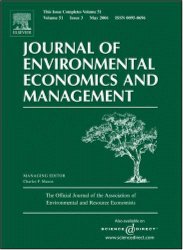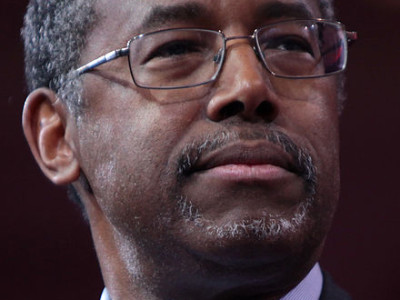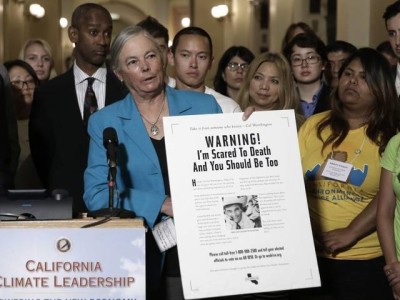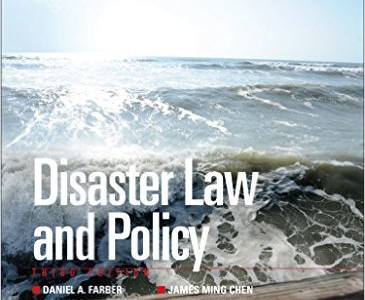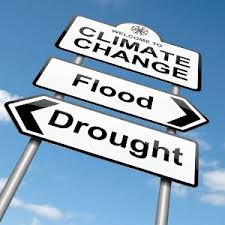Month: September 2015
What’s New in Environmental Economics?
Some interesting recent publications.
It sometimes takes awhile for journals to reach my desk as they circulate among faculty, so this isn’t hot off the presses. But I’ve been looking at some recent issues of JEEM (the Journal of Environmental Economics and Management), and I found a number of very interesting articles. Fully grasping the articles would require a …
Continue reading “What’s New in Environmental Economics?”
CONTINUE READINGWhat Does Ben Carson Think About the Environment?
He hasn’t said much. Mostly he sounds like Mitch McConnell. But sometimes he sounds like Pope Francis.
Ben Carson is rapidly rising in the polls for the GOP presidential nomination. He has a number of strengths including a demeanor that is the opposite of Donald Trump’s and an arresting personal story. Apparently, for many GOP voters, part of his charm is his lack of experience in politics or government. He has taken …
Continue reading “What Does Ben Carson Think About the Environment?”
CONTINUE READINGResources on the Clean Power Plan
and EPA’s Other Rulemakings under Clean Air Act § 111
On August 3rd, EPA released its long-awaited Clean Power Plan, which implements Clean Air Act § 111(d) to set the first-ever national standards for carbon emissions from existing fossil-fuel-fired power plants. The Clean Power Plan calculates reasonably achievable performance rates for existing coal, oil, and natural gas power plants across the country, and assigns an …
Continue reading “Resources on the Clean Power Plan”
CONTINUE READINGCalifornia’s Effort To Set 2030 Greenhouse Gas Emissions Fails
What are the implications for ongoing climate efforts?
In another, even bigger setback for the environmental community in California, SB 32 (Pavley), the bill to set greenhouse gas targets for 2030 and 2050, was pulled yesterday and will be tried again next year. The winners are the oil companies, who face tough regulations and competition from California’s climate efforts. The failure is a …
Continue reading “California’s Effort To Set 2030 Greenhouse Gas Emissions Fails”
CONTINUE READINGBuilding Climate Coalitions
A New Paper in Science Illuminates the Political Dynamics
Economists are used to evaluating policy instruments based on their economic effects. No surprise there. But a recent paper in Science argues that the political effects may be just as important. Perhaps it’s not a coincidence that three of the four authors are political scientists; the fourth is Eric Biber, a frequent contributor to this …
Continue reading “Building Climate Coalitions”
CONTINUE READING“Big Oil” Defeats California’s Petroleum Reduction Legislation, But It May Not Matter
Western States Petroleum Association will likely face tough regulations and market conditions anyway
It was a rare defeat yesterday in the legislature for California’s environmental community. After major victories in 2006 with AB 32 (to reduce greenhouse gas emissions to 1990 levels by 2020), in 2008 with SB 375 (to reform transportation and land use planning), and in 2010 with a voter rejection of the oil industry’s attempt …
CONTINUE READINGDisaster Law and Policy
A new textbook on the emerging field of Disaster Law.
I’m delighted to announce the publication of the third edition of Disaster Law and Policy. Although I might not normally use this blog to promote a new book, I’d like to think in this case this is more than just shameless self-promotion. That’s for two reasons: the lion’s share of the credit for the improvements …
Continue reading “Disaster Law and Policy”
CONTINUE READINGAs Predicted, Premature Suit to Block Clean Power Plan Implementation Fails
Petitioners don’t meet standards for extraordinary writs
The case filed by 15 disgruntled states, led by West Virginia, seeking to block the implementation of the Clean Power Plan has been dismissed by the D. C. Circuit Court of Appeal as premature. Here’s an explanation of the legal and political basis for the lawsuit. As predicted when the states filed the lawsuit, …
Continue reading “As Predicted, Premature Suit to Block Clean Power Plan Implementation Fails”
CONTINUE READINGThe Shadow Price of Carbon
Merging Cost-Benefit Analysis and Feasibility Analysis
The U.S. government has devoted a lot of time and effort to estimating the social cost of carbon. This is basically a standard exercise in cost-benefit analysis, following a familiar three-step process: 1. Impacts. Figure out the physical impacts of the emissions. This involves setting up some emissions scenarios and then running computer simulations to …
Continue reading “The Shadow Price of Carbon”
CONTINUE READINGThe Top Ten Reasons Trump Should Endorse a Carbon Tax
A bold move, if Trump is brave enough to go there.
Not that he’s asked for my advice, but here are ten powerful reasons why Donald Trump should endorse a carbon tax: 10. It would be completely inconsistent with his past positions. 9. It would shock the GOP establishment. 8. It would shock the media. 7. He’s already endorsed a tax increase for …
Continue reading “The Top Ten Reasons Trump Should Endorse a Carbon Tax”
CONTINUE READING




